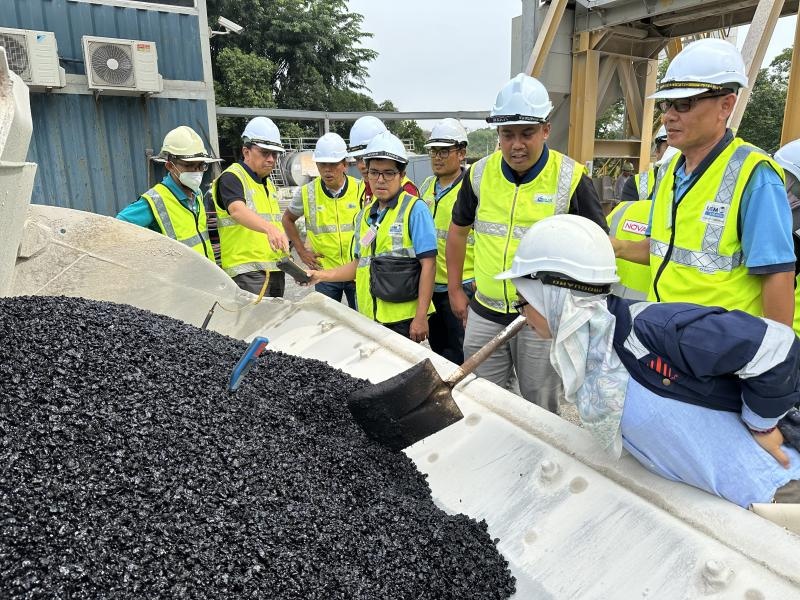Fibre Mastic Asphalt

Enhanced Durability:
Resistance to Cracking: The fibers reinforce the asphalt structure, making it less susceptible to cracking caused by temperature fluctuations and heavy loads.
Reduced Rutting: FMA's ability to resist deformation under stress helps to maintain a smooth road surface.
Longer Lifespan: The increased durability of FMA reduces the need for frequent repairs and maintenance, saving time and money.
Improved Performance:
Enhanced Skid Resistance: The fibrous nature of FMA provides better traction, improving road safety.
Reduced Noise: FMA can contribute to a quieter road surface, reducing noise pollution.
Improved Water Drainage: The open structure of FMA helps to prevent water pooling and hydroplaning.
Environmental Benefits:
Sustainable Material: The use of natural fibers derived from renewable resources reduces the environmental impact of road construction.
Reduced Carbon Footprint: By extending the lifespan of roads, FMA can help to reduce the need for new construction, which has a significant carbon footprint.
Applications of FMA:
Highways and Major Arteries: FMA is ideal for roads that experience heavy traffic volumes.
Airport Runways: The durability and performance of FMA make it suitable for airport runways.
Industrial Areas: FMA can withstand the heavy loads and harsh conditions often found in industrial areas.
In summary, Fibre Mastic Asphalt offers a sustainable and durable solution for road construction, providing improved performance, reduced maintenance costs, and environmental benefits.
